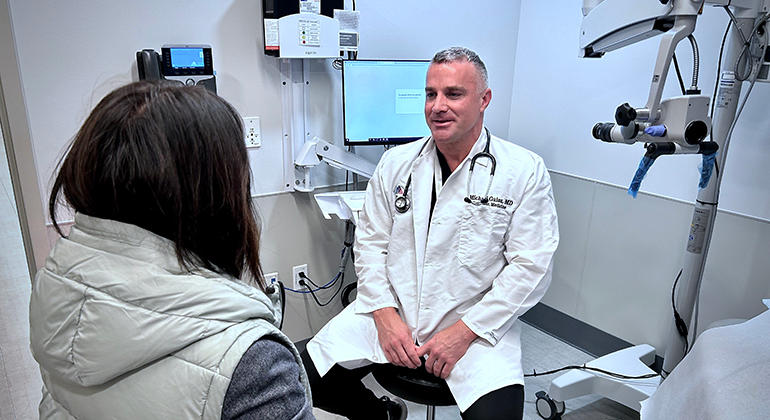Overview
The Anal Cancer Etiology and Screening (ACES) study is a collaboration between the National Cancer Institute and Icahn School of Medicine at Mount Sinai, which seeks to evaluate anal cancer natural history and tests for anal cancer screening. The study is designed to evaluate the performance of HPV-related biomarkers for detection of anal precancer among individuals from different risk groups undergoing anal cytology, HPV testing, and high resolution anoscopy (HRA) through the Anal Cancer Prevention Program at Mount Sinai.
Study Team
DCEG Investigators
Nicolas Wentzensen, M.D., Ph.D., M.S.
Clinical Genetics Branch
Icahn School of Medicine at Mount Sinai
Keith Sigel, M.D., Ph.D., Michael Gaisa, M.D., Ph.D., and Yuxin Liu, M.D., Ph.D.
Background & Purpose
Anal squamous cell carcinomas (representing >90% of anal cancers) are caused by high-risk human papillomavirus (HPV) infection via a multistep process that begins with HPV infection. While many HPV infections do not cause disease and are cleared by the host immune system, some persist, and a subset of persistent infections will progress to anal precancer (high-grade squamous intraepithelial lesions; HSIL) and may develop into invasive cancer if left untreated. The U.S. Anal Cancer HSIL Outcomes Research (ANCHOR) study demonstrated that treating anal precancers significantly reduces the risk of progression to anal cancer in people with HIV, emphasizing the importance of screening for anal HSIL for anal cancer prevention.
Although anal cancer is rare in the general population, certain groups, including people with HIV, particularly men who have sex with men (MSM), have a much higher risk of developing anal cancer. Other groups with elevated risk include women with HIV, MSM without HIV, and women with a history of lower genital tract disease.
The International Anal Neoplasia Society (IANS) recently published evidence-based recommendations for anal cancer screening in populations with elevated risk. Current recommendations for anal cancer screening include anal cytology and/or high-risk HPV testing. Like in cervical screening, anal cytology has limited reproducibility and sensitivity for detecting anal precancers, and while HPV testing has high sensitivity, the specificity is low owing to the high prevalence of HPV in certain groups with elevated risk for anal cancer. Novel biomarkers, including p16/Ki-67 Dual Stain and extended HPV genotyping, have recently been approved for management of HPV-positive test results for cervical cancer screening. Very limited data exist on the performance of these tests as well as other biomarkers, such as HPV and host gene methylation, for detecting anal precancers.
The ACES study is meeting this need by evaluating the performance of HPV genotyping, dual stain, and HPV and host methylation biomarkers for detection of anal precancer among individuals undergoing HPV testing, anal cytology, and HRA through the Anal Cancer Prevention Program at Mount Sinai.
See all DCEG research on anal cancer and infectious agents.
Study Design
The ACES study is conducted within the Anal Cancer Prevention Program at Mount Sinai. The researchers aim to enroll at least 1,000 individuals. Eligible participants include individuals undergoing anal cytology, HPV testing, and high resolution anoscopy at Mount Sinai. The researchers will collect routinely discarded anal cytology (i.e., Pap) specimens from all individuals to be processed and stored for biomarker testing. Demographic and clinical data from electronic medical records including age, race and ethnicity, sex, sexual orientation, HIV status, smoking status, HPV vaccination history, anal cytology and HPV testing results, and histology results from anal biopsies will be collected from electronic health records. Importantly, the clinical population at Mount Sinai is large and diverse, allowing researchers to evaluate test performance within different risk groups (e.g., MSM with and without HIV, women with HIV).
